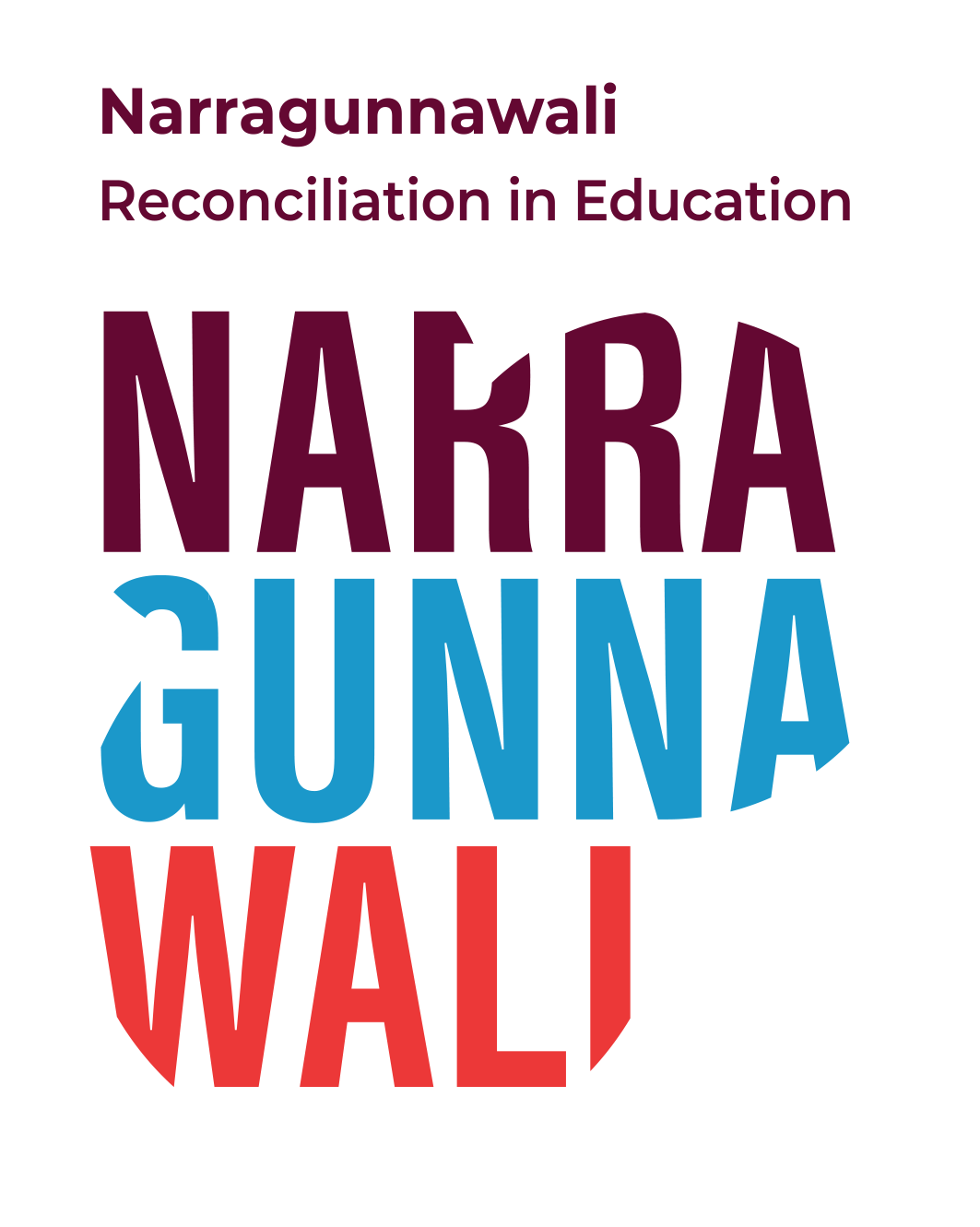The Narragunnawali program can support pre-service teachers and educators to take reconciliation action before they enter their future classrooms, schools and educational communities.
The 3Rs platform; Respect, Relationships, Reconciliation, equips current and future teaching staff with key concepts around reconciliation and Aboriginal and Torres Strait Islander people and perspectives, and their ongoing importance. It was developed by the Australian Council of Deans of Education through the Australian Indigenous Lecturers in Teacher Education Association.
These are some more suggestions on how Initial Teacher Education (ITE) staff and students could get involved with Narragunnawali and reconciliation in education.
-
Link to the Narragunnawali platform on your websitePut our logo and link to www.narragunnawali.org.au on your website or open-source learning management system (Moodle or iLearn, for example) with the text:
Reconciliation Australia’s Narragunnawali: Reconciliation in Education supports Australian schools and early learning services to foster knowledge and pride in Aboriginal and Torres Strait Islander histories, cultures and contributions.
Contact us with how you plan to use the logo and link, and to request a high resolution version of the logo.
-
Join us for a Narragunnawali webinar or workshop
We run free, regular webinars and workshops which you can register for and join live or watch later.
Contact us to find out about having a private or tailored webinar, in-person workshop or guest lecture from a Narragunnawali team member.
-
Engage with some suggested readings and resources
ITE staff and students can use Reconciliation Australia resources while teaching, learning and reflecting on the context and concept of reconciliation in education.
They produce:
• The State of Reconciliation in Australia Report (2016) (and summary)
• The State of Reconciliation in Australia Report (2021) (and summary)
• Australian Reconciliation Barometer Report (2022) (and summary)
• videos on the Reconciliation Australia YouTube channel
• more resources on Share Our Pride.We also produce useful:
• subject-specific guides
• professional learning resources
• curriculum resources.Some academic texts might have important relationships to reconciliation-in-education, particularly when they’re about:
• critical-reflective practice
• place-based pedagogies
• whiteness and critical race theory
• high expectations relationships
• ‘Indigenising’ and decolonising curricula
• rights-based and social justice approaches to education
• ethics in Aboriginal and Torres Strait Islander research, learning and teaching
• resilience theories and threshold concepts.Also see 'The Importance of Reconciliation in Education', compiled as part of the ANU-CSRM’s external Evaluation of Narragunnawali: Reconciliation in Education.
-
Request a resource, assessment task, or lecture/tutorial plan review
Use the self-led and self-paced professional learning resources to:
• critically evaluate and strengthen teaching materials and approaches
• align approaches with reconciliation concepts, language and action.As starting place, the curated Reconciliation Teacher Toolkit includes a selection of core professional learning resources and reference materials that may prepare pre-service teachers in their culturally responsive pedagogical development, and to drive reconciliation in their classrooms of the future.
ITE students may also find the reflective exercises in the RAP Actions useful for learning and assessment. Each RAP Action relates to a requirement that progresses reconciliation in a school or early learning service’s Reconciliation Action Plan (RAP).
Students could also look at excellent commitment to reconciliation in education shown through the Narragunnawali Awards program.Contact us to ask about:
• reviewing your resource
• how your resource might support reconciliation in the lecture theatre, tutorials or ITE assessment tasks.
-
Spread some key messages
ITE teaching and learning is a great time to spread key messages about the history and ongoing importance of reconciliation in education.
ITE staff could do an audit to find out:
• where and how these messages are embedded in their ITE program
• opportunities for incorporating reconciliation into ITE lecture and tutorial sessions.Visit Reconciliation in Education: Key Messages to learn more!
-
Reconciliation Action Plans (RAPs) for educational institutions
Early Learning, Primary and Secondary Schools
A Reconciliation Action Plan (RAP) is a formal statement of commit to reconciliation. You can register existing initiatives or begin a new RAP journey for your school or early learning service on our online platform.
The Narragunnawali RAP framework shows how the RAP Actions develop relationships, respect and opportunities in the classroom, around the school and with the community.
ITE students should know about the purpose and process of developing RAPs through Narragunnawali. It might encourage them to participate in – or even drive – RAP initiatives in their practical teaching experience and teaching careers.
The Who has a RAP? map shows schools and early learning services across the country with RAPs.
Tertiary Educational Institutions
Tertiary educational institutions can join the workplace RAP program.
It gives organisations a meaningful and practical framework to support the national reconciliation movement. Even if you’re on your reconciliation journey, you can develop one of four types of RAP: Reflect, Innovate, Stretch or Elevate.
You can also search for examples of tertiary educational institutions with a published RAP.
-
Share your ideas with us!
We love to hear feedback and ideas from educational jurisdictions, academics, teachers, educators, parents, students and community members.
Your feedback is at the core of the Narragunnawali program’s development. Our team is committed to ensuring our work is as relevant and responsive as possible.
Contact us to share any more ideas about how ITE teachers and students can engage with us and reconciliation broadly.



